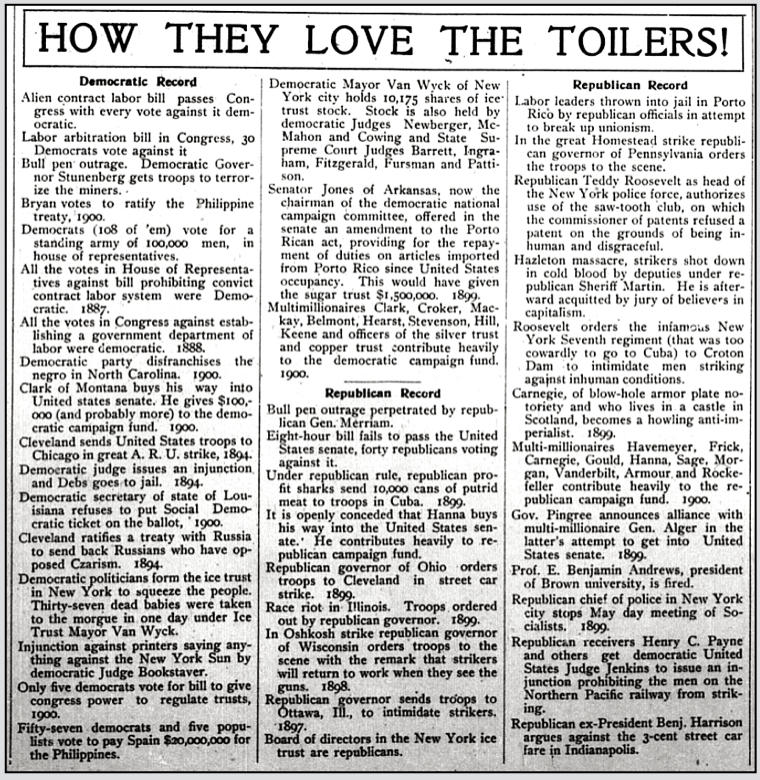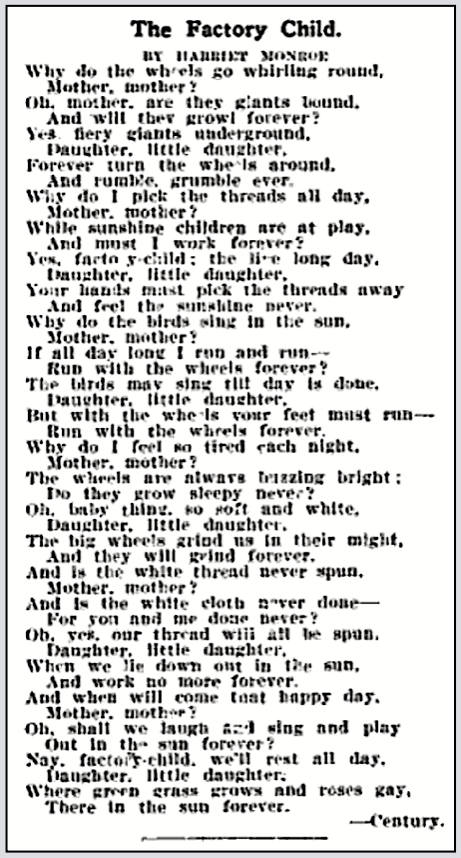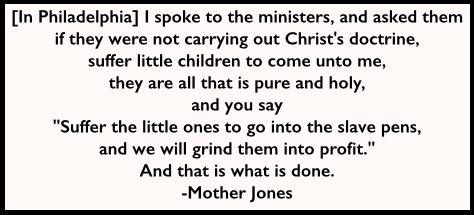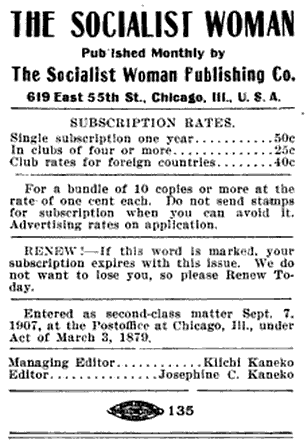 —————
—————
Hellraisers Journal – Thursday September 14, 1911
“The Blighting of the Babies” -from John Spargo’s Bitter Cry of the Children
From The Progressive Woman of September 1911:
THE BLIGHTING OF THE BABIES
—————
(From “the Bitter Cry of the Children” by John Spargo)
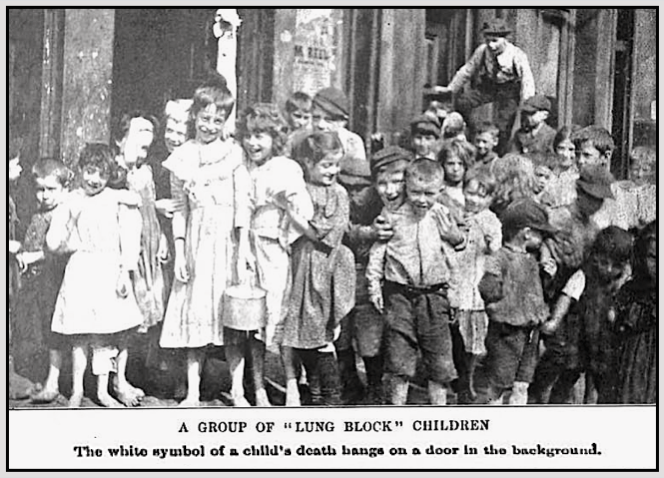
Poverty and Death are grim companions. Wherever there is much poverty the death-rate is high and rises higher with every rise of the tide of want and misery. In London, Bethnal Green’s death-rate is nearly double that of Belgravia; in Paris, the poverty stricken district of Ménilmontant has a death -rate twice as high as that of the Elysée; in Chicago, the death-rate varies from about twelve per thousand in the wards where the well-to-do reside to thirty-seven per thousand in the tenement wards .
The ill developed bodies of the poor, underfed and overburdened with toil, have not the powers of resistance to disease possessed by the bodies of the more fortunate. As fire rages most fiercely and with greatest devastation among the ill-built, crowded tenements, so do the fierce flames of disease consume most readily the ill-built, fragile bodies which the tenements shelter. As we ascend the social scale the span of life lengthens and the death-rate gradually diminishes, the death-rate of the poorest class of workers being three and a half times as great as that of the well-to-do. It is estimated that among 10,000,000 persons of the latter class the annual deaths do not number more than 100,000, among the best paid of the working class the number is not less than 150,000, while among the poorest workers the number is at least 350,000.
This difference in the death-rates of the various social classes is even more strongly marked in the case of infants. Mortality in the first year of life differs enormously according to the circumstances of the parents and the amount of intelligent care bestowed upon the infants. In Boston’s “Back Bay” district the death-rate at all ages last year was 13.45 per thousand as compared with 18.45 in the Thirteenth Ward, which is a typical working class district, and of the total number of deaths the percentage under one year was 9.44 in the former as against 25.21 in the latter. Wolf , in his classic studies based upon the vital statistics of Erfurt for a period of twenty years, found that for every 1,000 children born in working-class families 505 died in the first year; among the middle classes 173, and among the higher classes only 89. Of every 1,000 illegitimate children registered-almost entirely of the poorer classes-352 died before the end of the first year.
Dr. Charles R. Drysdale, Senior Physician of the Metropolitan Free Hospital, London, declared some years ago that the death-rate of infants among the rich was not more than 8 per cent, while among the very poor it was often as high as 40 per cent.
Dr. Playfair says that 18 per cent of the children of the upper classes, 36 per cent of the tradesman class, and 55 per cent of those of the working-class die under the age of five years.
Continue reading “Hellraisers Journal: Progressive Woman: “The Blighting of the Babies” from Bitter Cry of the Children by John Spargo” →
 —————
—————
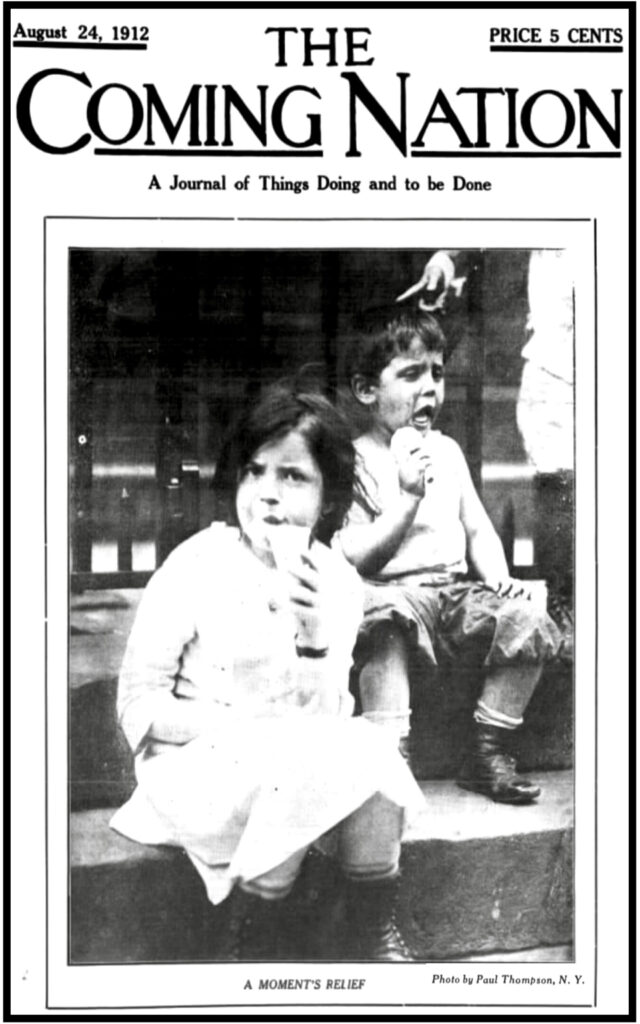
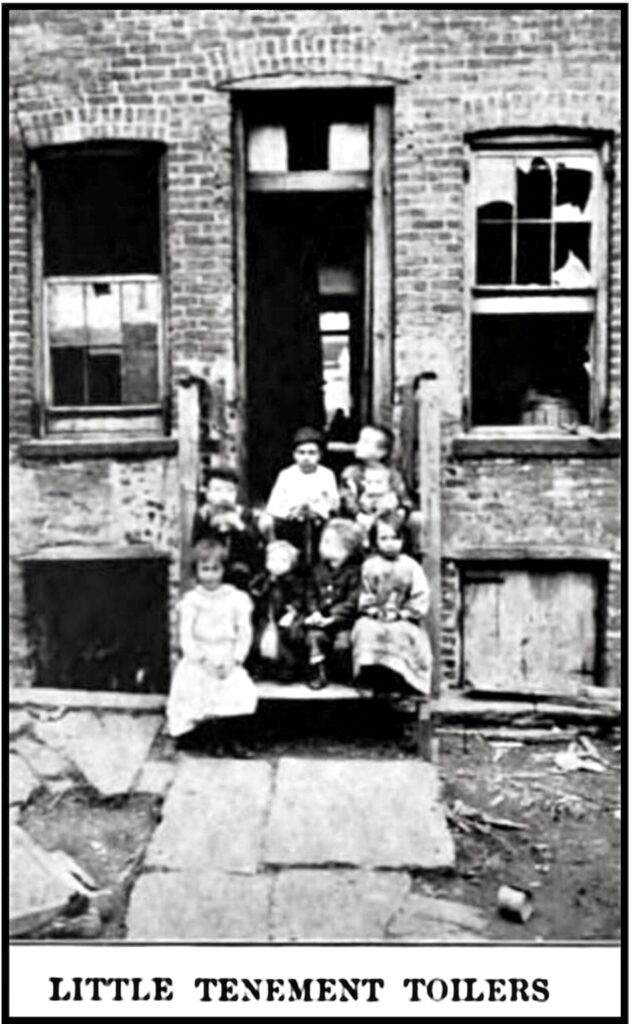
 —————
—————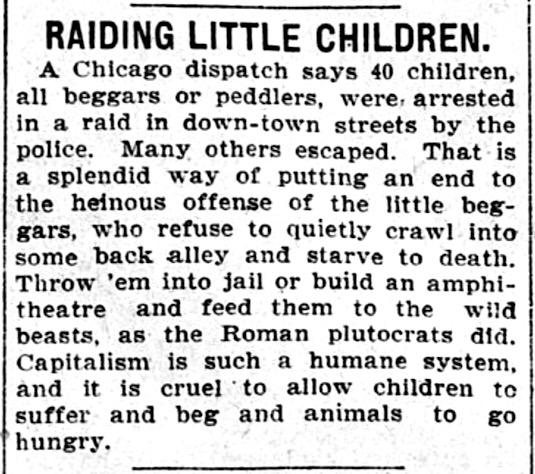
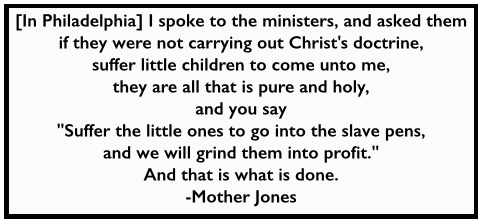
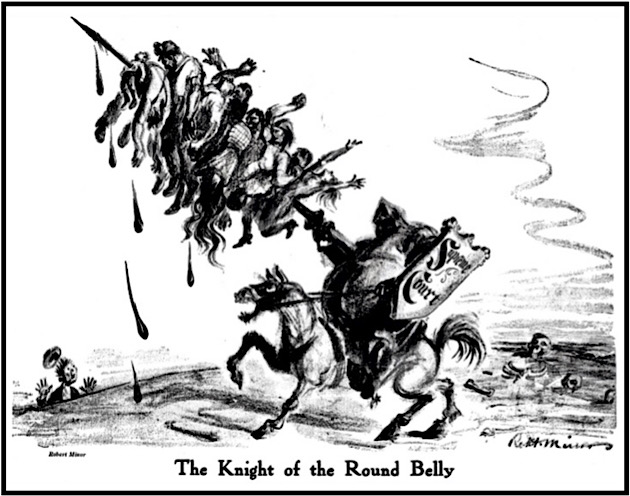
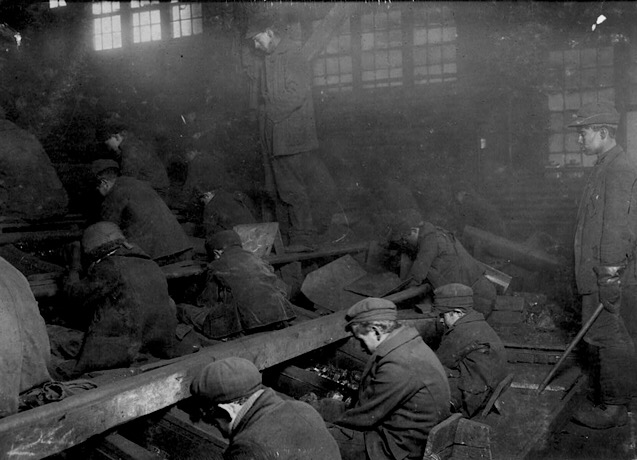

 ———–
———–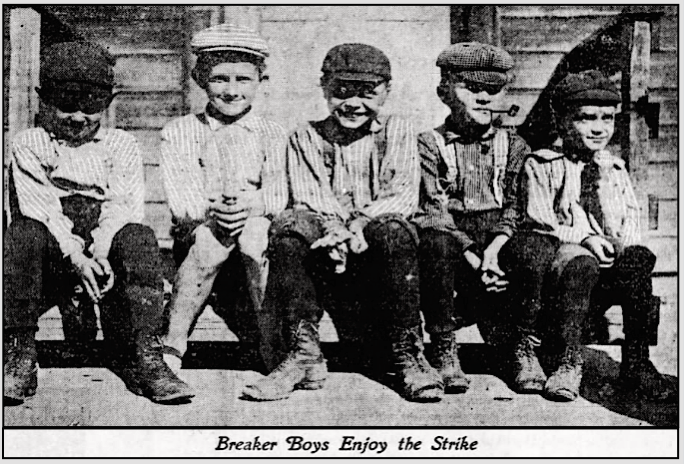
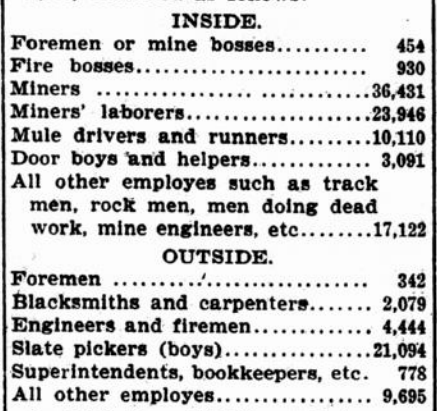
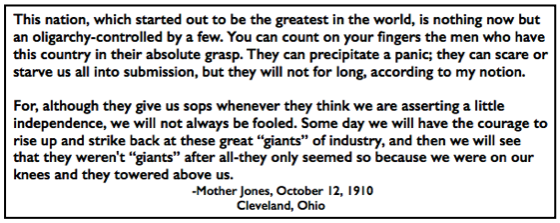 ———-
———-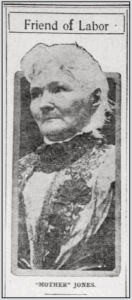
 ———-
———-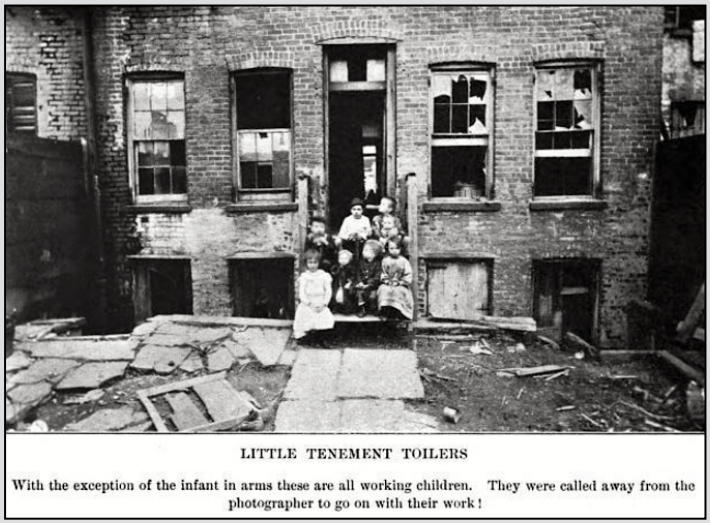
 ———-
———-
